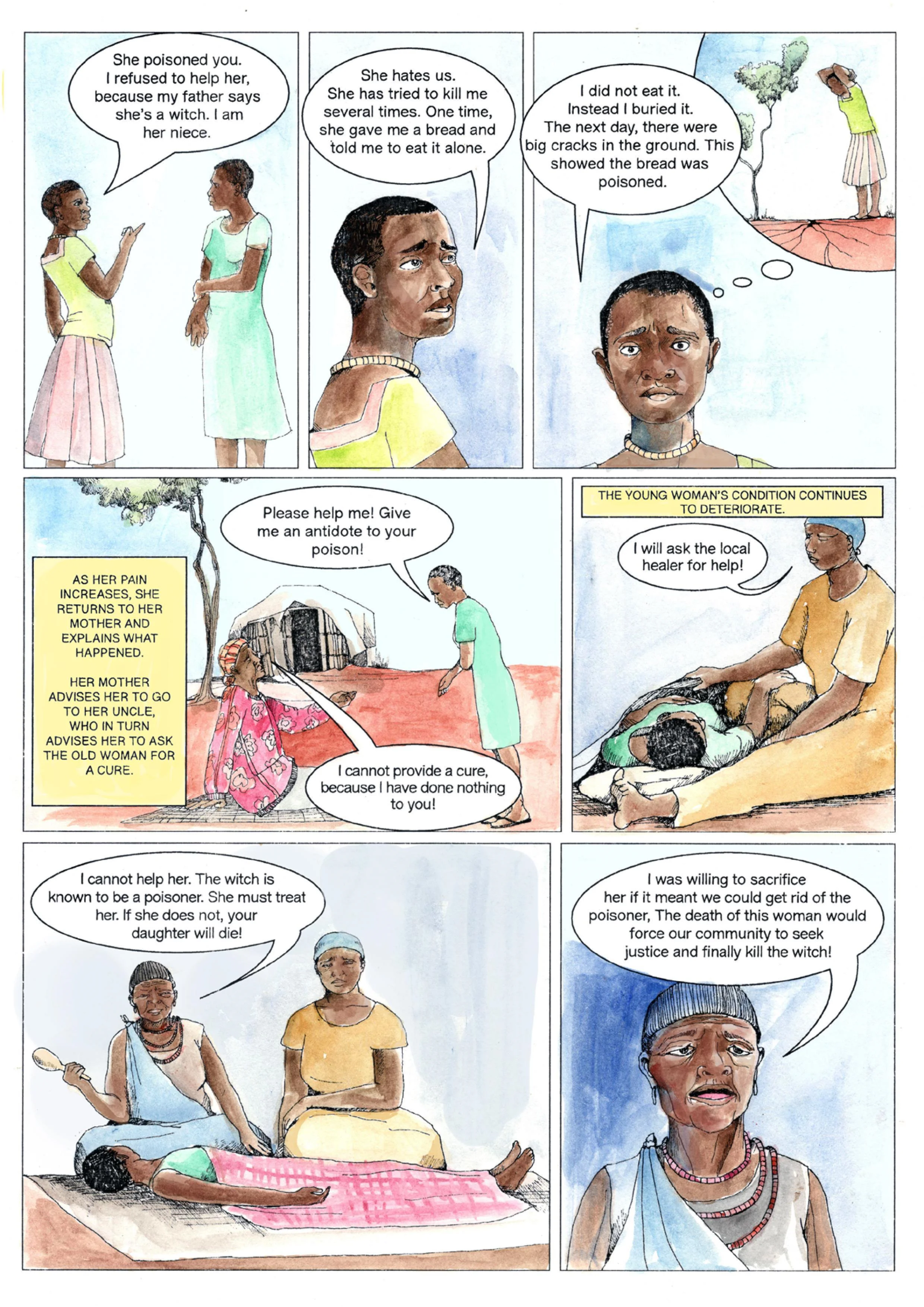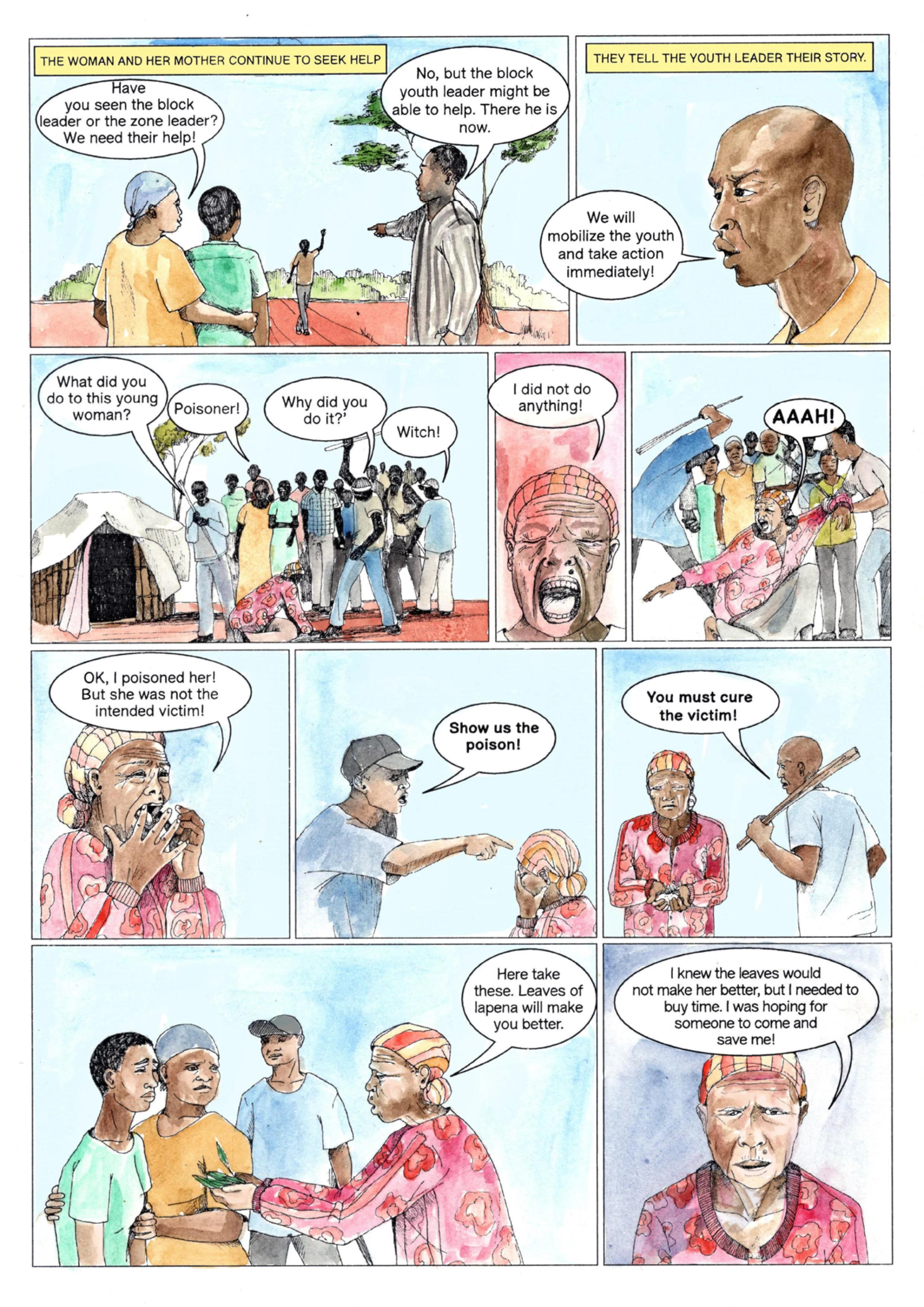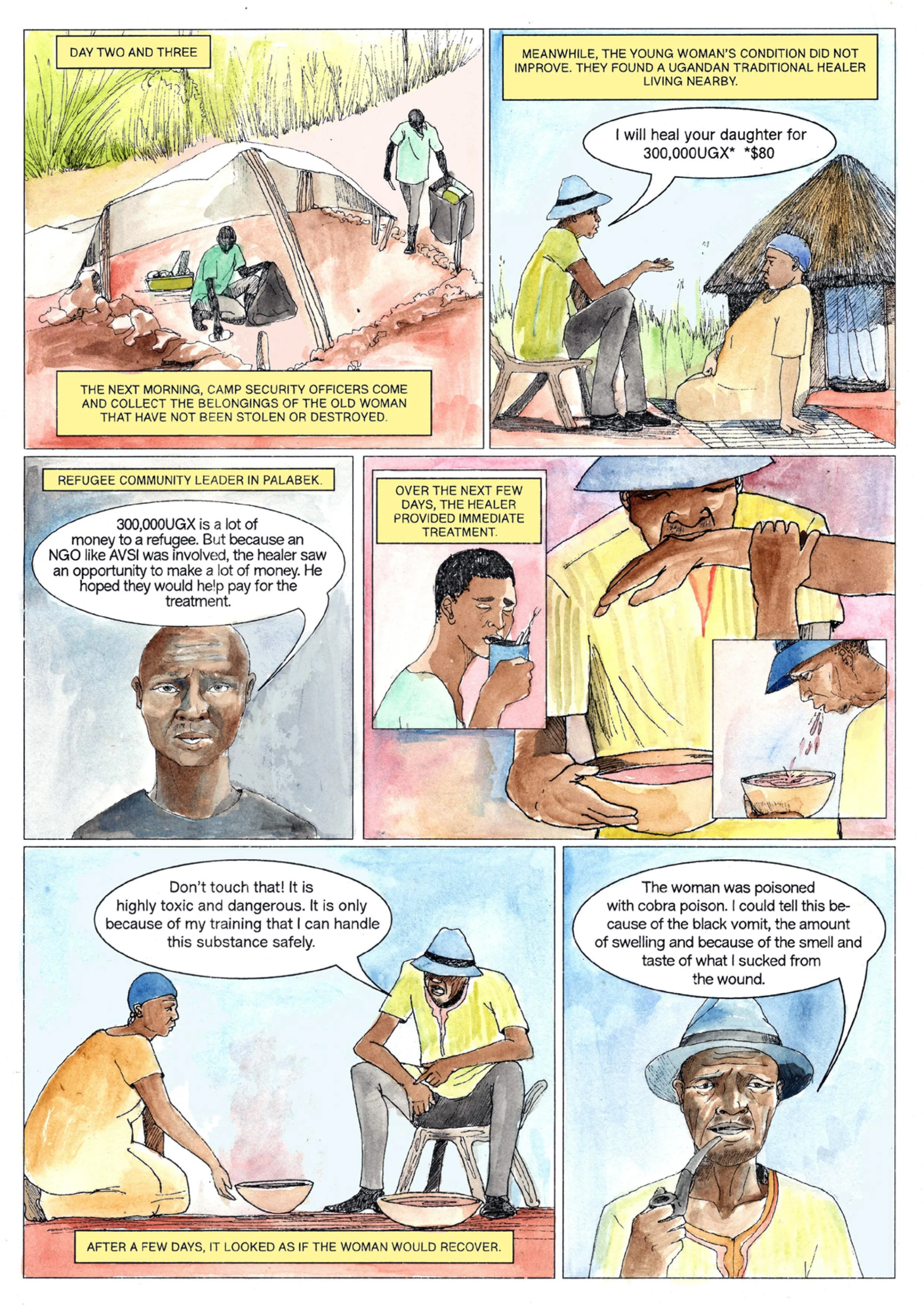The fragility of public authority in Palabek refugee settlement in Uganda

CPAID comics series
As part of a series of six comics on public authority across Africa, Ugandan cartoonist and comic artist Charity Atukunda has illustrated some of CPAID's cutting-edge research on issues of public authority, refugees and spiritual danger in Uganda. Based on real events, the comic asks: what happens when refugee communities and those who are tasked with protecting them have differing opinions about what constitutes a threat?
View the comic below.
The story depicted provides insights into the tensions involved in negotiating and maintaining public authority in a refugee settlement context, which is always highly imbalanced and unequal.
Research on refugees, spiritual danger and public authority
The cartoon, A Poisoning in Palabek, is based on 12 months ethnographic fieldwork conducted among South Sudanese refugees living in Palabek Refugee Settlement in northern Uganda between 2017 and 2018, where there are currently over 2 million South Sudanese refugees, most resulting from the 2013-18 civil war. Despite now living in relative safety, many residents of Palabek Refugee Settlement still experience great feelings of insecurity and uncertainty, which reflect the complex difficulties of life without access to land, a steady source of food or income, or reliable health and educational support.
Unfortunately, these problems also make some refugees distrustful of others, especially members of other ethnic groups or those (like the elderly woman in this story) who are eligible for extra help or benefits. Many refugees also feel that UNHCR (the United Nations High Commissioner for Refugees) and the various NGOs that work in the settlement privilege the rights of specific individuals over those of the community as a whole. They find the individual-oriented focus of the wider refugee system especially worrying if the person being protected is believed to be engaged in harmful or anti-social activities such as theft, violence or, worst of all, witchcraft or other forms of spiritual aggression. In such situations, feeling abandoned and neglected by camp authorities, residents sometimes feel they must rely on themselves for protection.
This is the background for the story depicted in this cartoon, which had very tangible real-life consequences for many of the people involved.
Researchers: Ryan Joseph O’Byrne, Julian Hopwood and Ogeno Charles








This comic was created by Cartoon Movement, a publishing platform for high quality editorial cartoons and comics journalism from all over the globe.